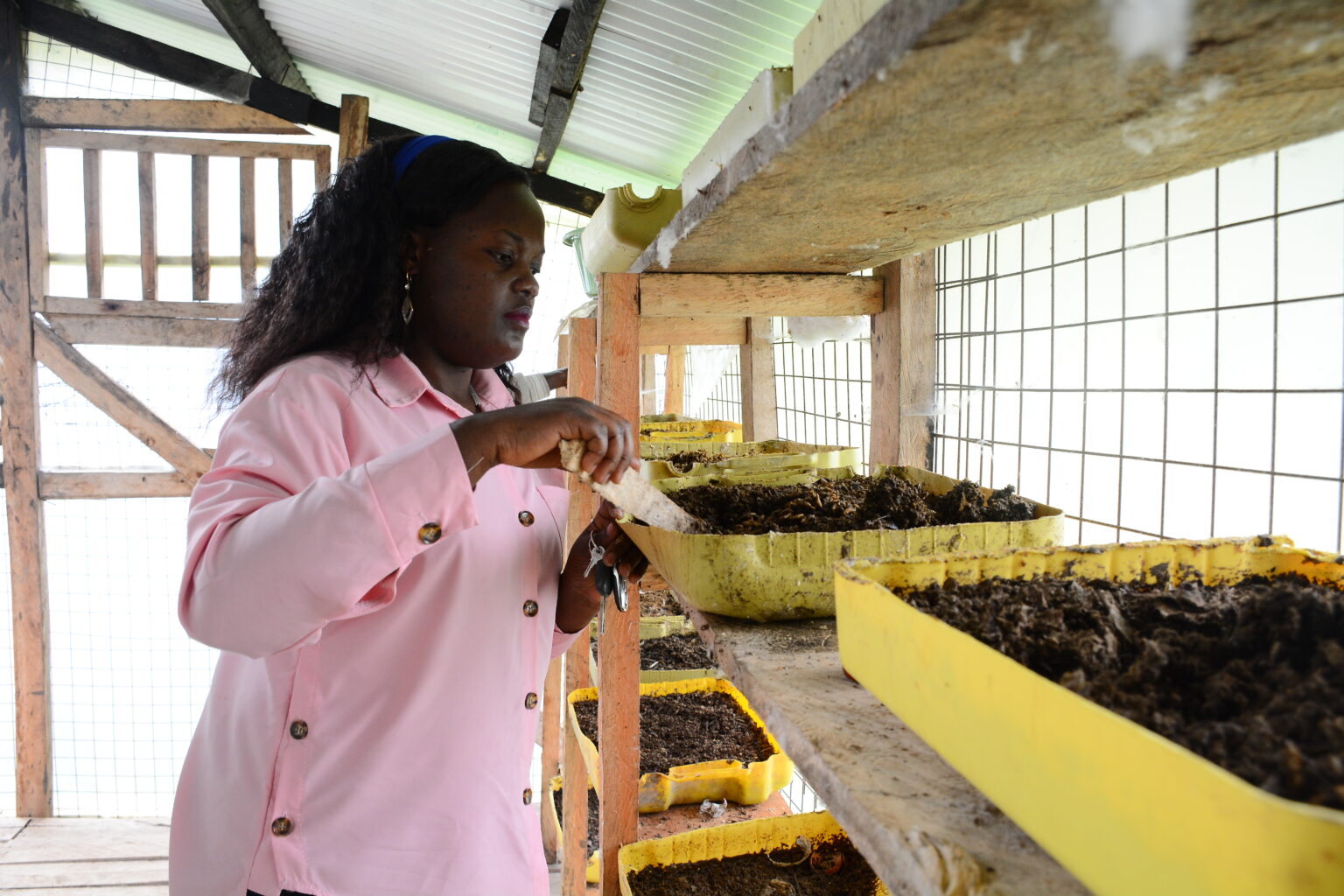Mountains of the Moon University (MMU) through the Faculty of Agriculture and Environmental Sciences has started an Insect farming project in black soldier flies, red warms and tiger warms to produce the larvae which help feeding in livestock, domestic birds and fish to solve the challenge of lack of protein. This activity was initiated in February, 2023.
According to the Assistant lecturer in the Faculty of Agriculture and Environmental sciences, Cecilia Kansiime, she explains that the larvae is fed on organic materials that can decompose such as rubbish, food leftovers, rotten pineapples, water melons.
“The insects for example the black soldier fly has a 45-day life cycle that is divided into four stages and the black soldier fly goes through full metamorphosis during its life span. This includes the egg, larvae, pupa and adult life cycle stages and all the stages have its own time duration,” Cecilia expounded.
Cecilia said they thought of insect farming project after realising a need to solve the challenge of lack of protein or expensive protein sources such as fish, soya bean and other meat from animals.
She adds that the larvae also has the ability to compost organic waste which is unique and environmentally friendly, reducing competition for food especially proteins between people and animals, improving soil fertility, improving farmers income through selling it which adds to the researchers idea of improving animal productivity.
According to the new United Nations report, it indicates that the current world population stands at 7.6 billion and is expected to reach 8.6 billion in year 2030, 9.8 billion in year 2050, asserting that the world standard of living will change and the need for protein will also increase, however, the land for production will not increase, and relatedly Cecilia said, this has inspired the scientists to look for an alternative source of food especially protein which will be required in higher amount by that time.
Meanwhile, Cecilia recommends a vigorous research towards understanding of the positive effect of black soldier fly in reducing protein competition and why farmers don’t easily adopt the technology which is still limited in Uganda and most areas of the Rwenzori region and very few researchers have tried to determine their effect.
Cecilia explains that insect farming can be achieved without sophisticated technology nor high capital investments, making it not only a viable option for many subsistence farmers throughout the world but furthermore a potentially sustainable financial income
Sserume Araphat, a third year student, pursuing Bachelors degree of Science in Agriculture from the Faculty of Agriculture and Environment Sciences said as a finalist he hopes to get a lot from the project by employing himself, because it takes a small space, it can also be a source of income through selling organic fertilizers and pesticides which can be used in banana plantations, Irish potatoes, sweet potatoes even selling of maggots, pupa and larvae to those in need.
Since the initiative is new in the University and few community members know about it, Arafat, encourages the government to take it on, educate the society through carrying out community meeting about the numerous advantages of this black soldier fly and embrace the venture and integrate it into Governments Operation Wealth Creation program to farmers.
Written by: Brens Willie Wambedde

